SUMMARY
This is AI generated summarization, which may have errors. For context, always refer to the full article.
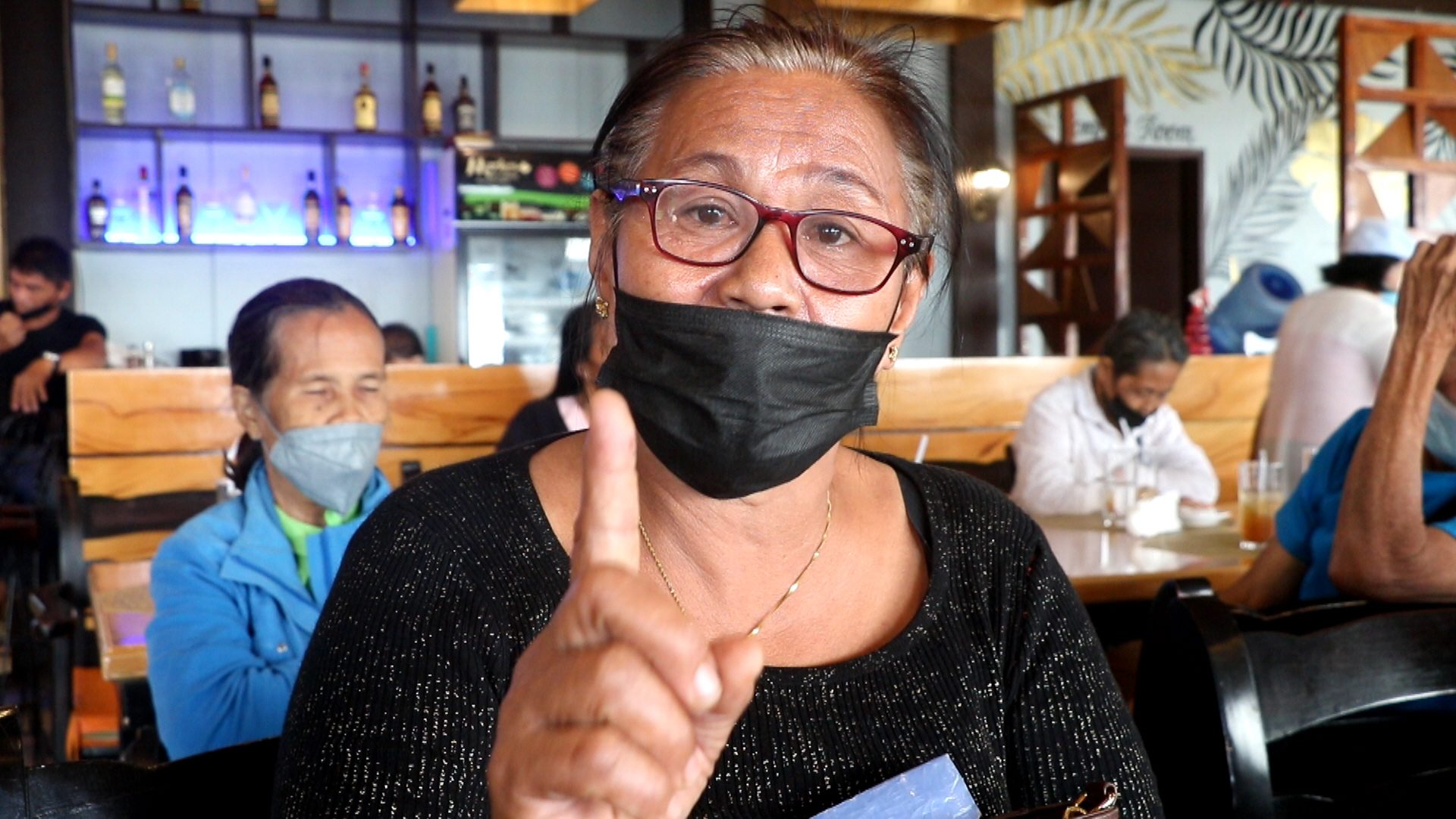
DIPOLOG, Philippines – The Department of Agrarian Reform (DAR) distributed Certificates of Land Ownership Award (CLOA) to 188 beneficiaries in Zamboanga del Norte on Thursday, March 9, as part of the government’s efforts to empower landless farmers.
But not all are happy about it. The move has sparked concerns for over 100 farming families in another part of the province who face the threat of displacement due to a local government’s plan to transform their community into a major tourist destination.
Their concern brought to the fore the challenge of balancing economic development and the protection of the rights of vulnerable communities.
Some 132 farmers who have been tilling the 929-hectare Linabo Peak in Dipolog have urged authorities to recognize their rights and grant them ownership of the land they and their ancestors have been working and living on even before World War II.
The government has yet to address the farmers’ concerns, but many of them still hope that their voices will be heard and their rights will be respected.
“Success is not achieved with acquiring of CLOAs. Success is complete when you start harvesting,” DAR Undersecretary for Mindanao affairs Amihilda Sangcopan said as they gave the CLOAs to beneficiaries, covering 329 hectares across a dozen towns in the province.
The predominantly Muslim village of Sirawai was the biggest beneficiary, receiving 60 CLOAs covering 137.2 hectares.
DAR Undersecretary for field operations Kazel Celeste, who personally led the distribution of titles to the beneficiaries, urged the recipients to value and take care of their newly acquired land as part of the government’s efforts to help farmers, including Agrarian Reform Beneficiaries (ARBs).
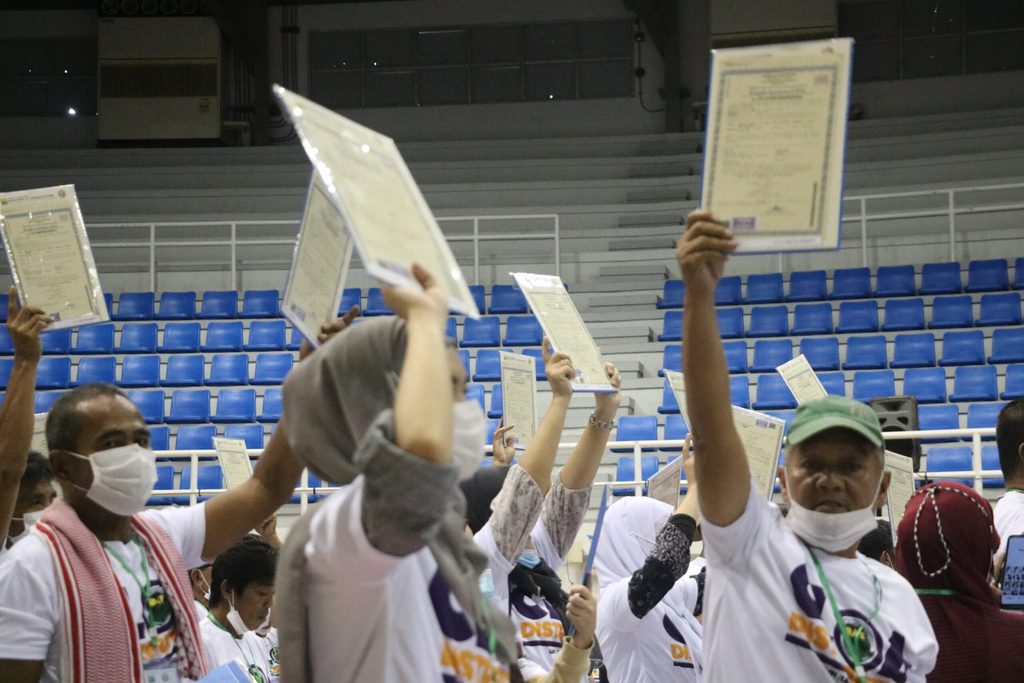
The government’s land distribution program has been seen as a crucial step towards reducing poverty and empowering marginalized communities, and the distribution of CLOAs is aimed to provide security of tenure to farmers and help them gain access to credit, markets, and other support services.
The event was a moment of joy for many, but for the farmers and their families in Linabo Peak, it was a stark reminder of their struggle for land ownership.
Since 2019, the farmers have been pleading with the DAR to grant their claims over part of the mountain, but to no avail.
The farmers also expressed worry about the city government of Dipolog’s plan to develop Linabo Peak into a major tourist attraction, which could lead to their displacement.
Mike Sanico, the leader of the Linabo Peak claimants, said they were apprehensive about the DAR’s inaction, citing the possibility of bias in favor of the local government.
But Provincial Agrarian Reform Program officer Rizzel Villanueva shrugged off the group’s apprehensions, explaining that there was a process that had to be followed.
Villanueva said it was only in 2022 when his office received a certification from the Department of Environment and Natural Resources (DENR) that 246 hectares of the Linabo Peak area being claimed were “alienable and disposable.”
Nonetheless, the farmers’ concerns remained, and they said they were determined to fight for their rights to the land they have been cultivating for generations.
The farming families have been claiming 929 hectares – far more than what the DENR certified as disposable in Linabo Peak.
What they have are two titles – Lot No. 5665 and Lot No. 2495 – under the name “Commonwealth of the Philippines,” or public lands that farmers petitioned to be given to them for the reason that their families have been tilling it before the war.
Previously, the land was classified as timberland and thus cannot be disposed of until the recent DENR certification covered a portion of the Linabo Peak.
With the DENR certification, Villanueva said the next step would be to conduct a joint ocular inspection of the area by several government agencies.
But scheduling the inspection could take time “because we have to adjust to each other’s timetables,” Villanueva said.
Linabo Peak, situated in barangays Lugdungan and Dicayas in Dipolog, and barangays Owaon, Antipolo, and Oyan in Dapitan City, as well as the village of Polanco, has emerged as a popular tourist attraction in Dipolog.
During the Lenten season, thousands of visitors climb the 3,003 concrete steps that link 14 “Way of the Cross” stations to the peak.
The Dipolog city hall has been collecting fees from tourists visiting Linabo Peak, and there are plans to transform the area into a world-class mountain resort to complement an internationally renowned beach resort in nearby Dapitan City.
Initially, the farmers were skeptical of the plan, but they began to believe it when Dipolog and DENR officials went up to Linabo Peak several times and told residents that the area would be reforested because, soon, cafes, bistros, and a five-star hotel would be built there.
When protests started in 2022, Dipolog Mayor Darel Dexter Uy assured the public that the local government had no intention of taking what rightfully belonged to the actual applicants of Linabo Peak.
He also said the city government would consult with claimants about any development projects in Linabo Peak.
Despite Uy’s assurances though, the farmers became more worried when the city government ceased receiving their payment for tax declarations beginning in 2022.
One of the claimants, 70-year-old Erenea Maghinay, expressed her concern: “I am worried and scared because the government is no longer receiving payments for our tax declarations.”
Maghinay said she was told about the possible relocation of the residents, and she feared for their future as they have no idea how to survive outside of Linabo Peak.
Another resident, Florenda Sotillo-Donio, 59, said her family has long-standing ties to the land.
“My great-grandfather tilled this land even before World War II, and then he passed it to my grandparents, then to my parents and now me. I will never give up Linabo Peak without a fight,” she said. – Rappler.com
Add a comment
How does this make you feel?
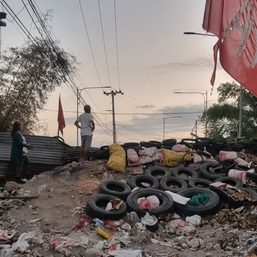

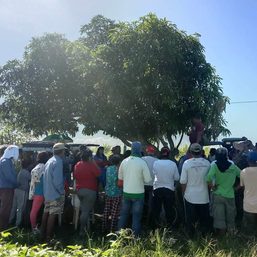
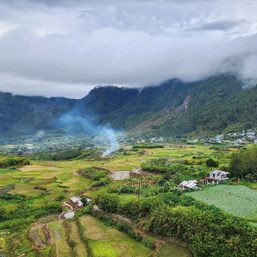
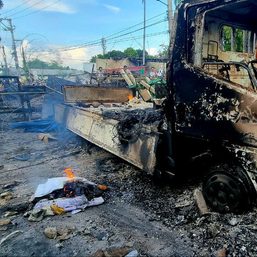
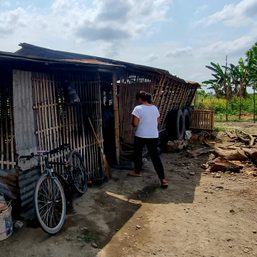
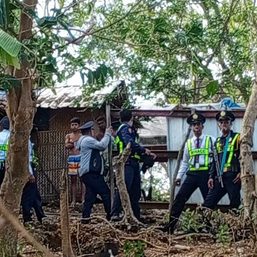
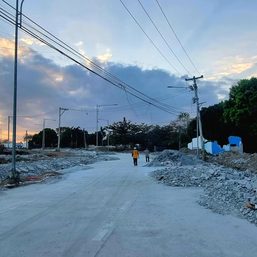
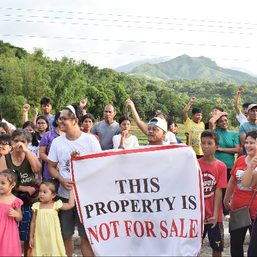
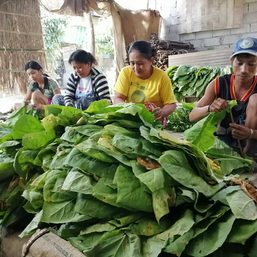
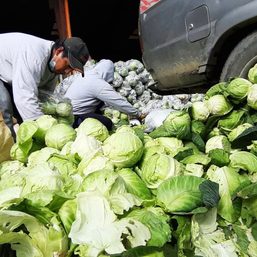
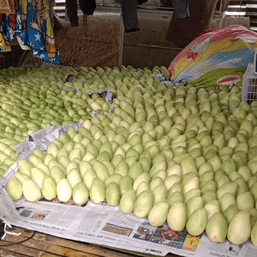
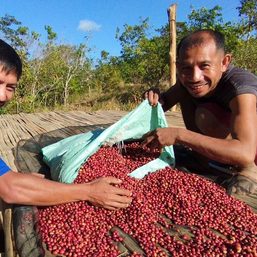
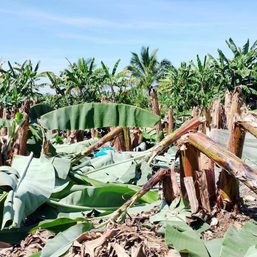
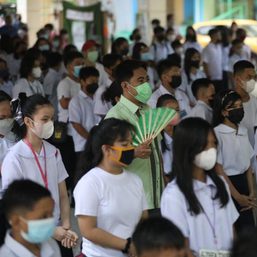
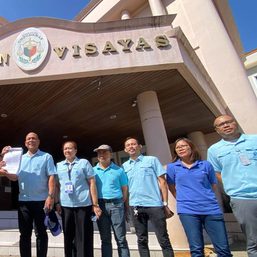
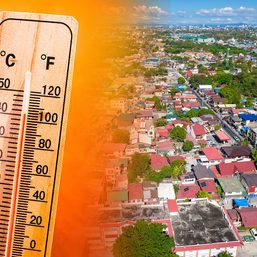

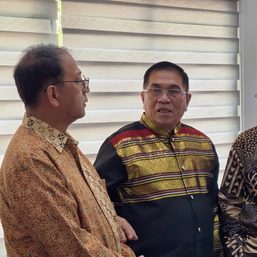



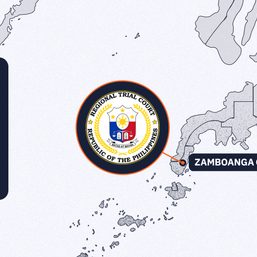

There are no comments yet. Add your comment to start the conversation.